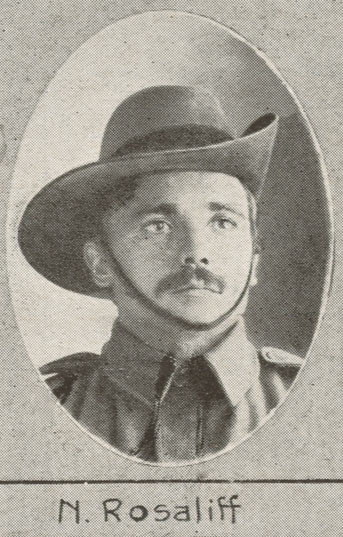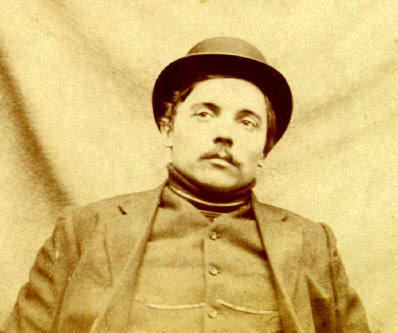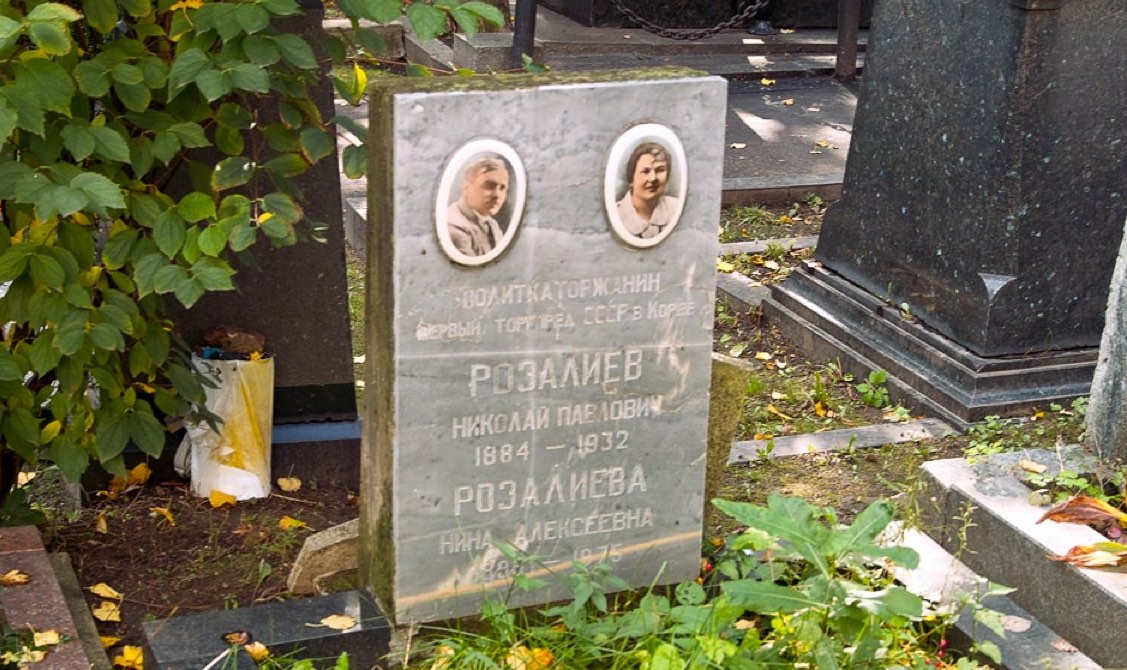Nicholas Rosalieff
| Alias | Rozal'ev |
|---|---|
| Russian spelling | Николай Павлович Розалиев |
| Born | 28.12.1886 |
| Place | Mogutovo, Samara, Russia |
| Ethnic origin | Russian |
| Religion | Russian Orthodox |
| Father | Paul (Pavel Georgievich) Rosalieff |
| Mother | Elizaveta Alekseevna |
| Family | Wife Nina Alekseevna Rosalieff (née Nikitina), married in Russia, son Iurii (Yuri), b. 1922, daughter Irina b. 1927 (information from grandson, Nikolai Rozaliev / Николай Юрьевич Розалиев) |
| Residence before arrival at Australia | Member of Eser (Socialist-Revolutionary) Party. Arrested in 1906 and exiled to Siberia. Fled from Siberia to Australia in 1910. |
| Arrived at Australia |
from Nagasaki on 8.01.1911 per Yawata Maru disembarked at Brisbane |
| Residence before enlistment | Cairns, Toowoomba, Qld |
| Occupation | in Russia - printer, locksmith, 1915 labourer, sugar-cane cutter, 1916 labourer |
| Naturalisation | Served as Russian subject |
| Residence after the war | Brisbane till 1917; 1918 returned to Russia, 1920 joined Communist Party, 1922 was expected to arrive at Australia for propaganda; 1930-32 worked in Korea as Soviet official |
| Died | 9.01.1932, Korea |
Service #1
| Service number | 2011 |
|---|---|
| Enlisted | 1.02.1915 |
| Place of enlistment | Brisbane |
| Unit | 9th Battalion |
| Rank | Private |
| Place | Gallipoli, 1915 |
| Final fate | RTA 4.08.1915 |
| Discharged | posted as deserter 18.11.1915, not eligible for awards |
Materials
Digitised service records (NAA)
Digitised Embarkation roll entry (AWM)
Alien registration (NAA)
Rosalieff - Soviet Commissary Russia (digitised file) (NAA)
Николай Розалиев, "Одиссея Нины Никитиной"
Blog article
Newspaper articles
"Like Russian Cossacks". - Daily Standard, Brisbane, 15 October 1913, p. 5.
Н. Розальев. Письмо в редакцию. - Рабочая жизнь, Брисбен, 11.04.1917, с. 4.
From Russian Anzacs in Australian History:
While researching my book My Dark Brother (the story of Ngadjon Aboriginal Kitty Clarke and her Russian husband Leandro Illin), I was looking through their daughter Flora Hoolihan's papers. There I came across a bundle of Russian postcards, of around 1911-12, sent by his Russian comrades-in-arms to Nicholas Rosalieff, a socialist revolutionary who fled from exile in Siberia to Australia in 1911. Their words are carefully couched, their messages elliptical: one has to read between the lines to grasp their meaning. And Flora, who couldn't understand Russian in any case, kept them safe for over half a century. Rosalieff later enlisted in the AIF. Even ephemeral things like postcards turn up in unexpected ways, to make surprising connections.
Russians who joined the army together, or who met up at training camp, would often embark together. Six Russians from Brisbane, for instance -- the journalists Chirvin and Fedorovich, the engineer Romanovsky, the labourer Domilovsky, the former revolutionary turned cane-cutter Rosalieff, and the butcher Soolcovsky -- all ended up together in the 9th Battalion's 5th reinforcement, departing on the Kyarra on 16 April 1915, along with Korotcoff, a cane-cutter from Port Douglas.
Gallery

Nicholas Rosalieff
Queenslander Pictorial, supplement to The Queenslander, 13 March 1915, p. 23

Nicholas Rosalieff
(Courtesy of grandson, Nikolai Rozaliev)

Nicholas Rosalieff's grave at Novodeviche Cemetery in Moscow
 Russian Anzacs
Russian Anzacs